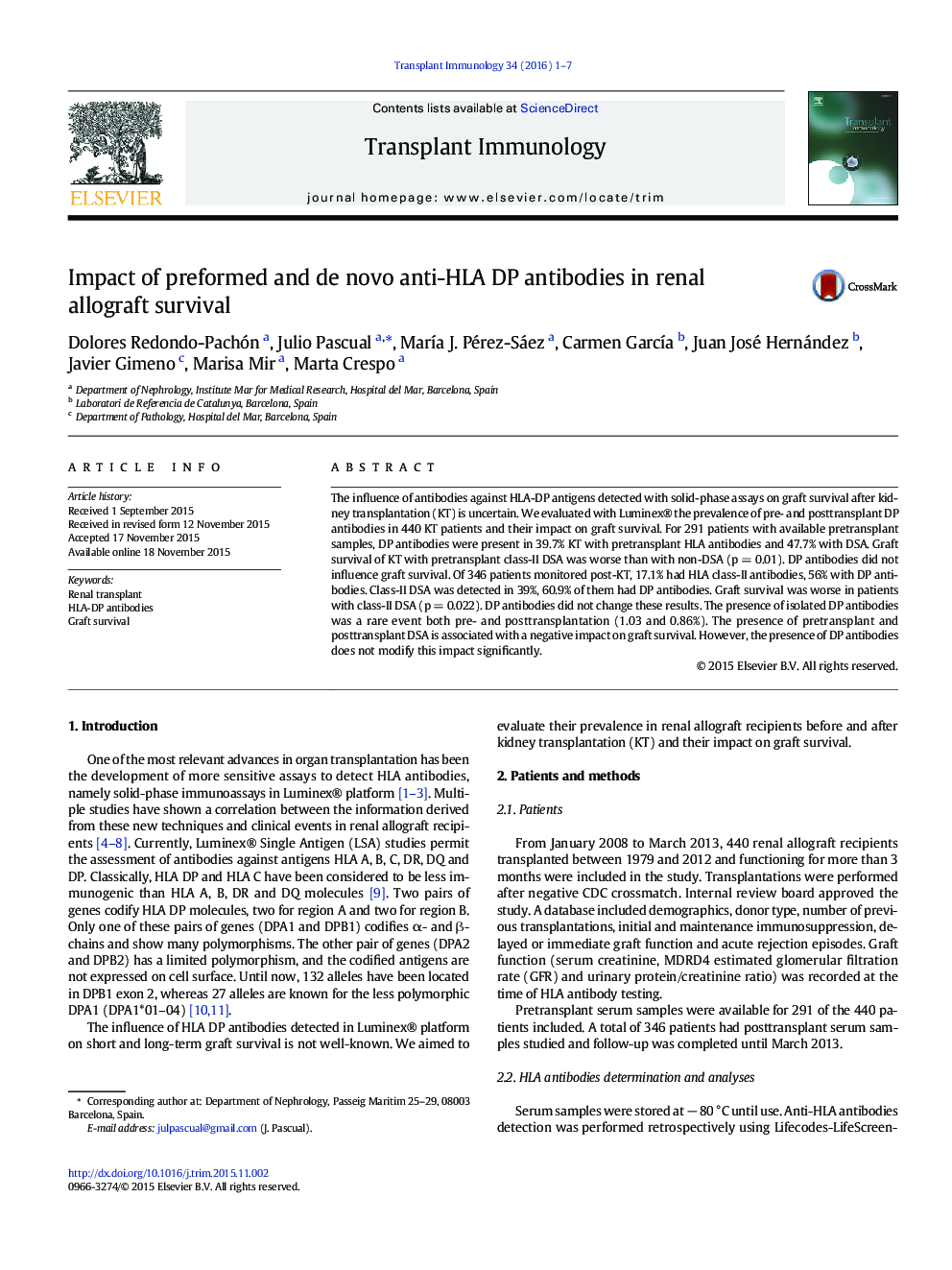| Article ID | Journal | Published Year | Pages | File Type |
|---|---|---|---|---|
| 3391988 | Transplant Immunology | 2016 | 7 Pages |
•The influence of HLA DP antibodies detected by Luminex® on short and long-term graft survival is not well-known.•10% of kidney transplant recipients show anti-HLA DP antibodies in single antigen studies, both pre- and posttransplantation.•The presence of DSA is associated with a negative impact on graft survival. However, the presence of HLA DP antibodies does not modify this impact.•In selected cases of humoral rejection with undetected HLA A, B, DR or DQ DSA, HLA DP antibodies, as well as other non-HLA antibodies, should be assessed.•Larger studies with kidney transplant donors well typed for HLA DP are needed to confirm our results.
The influence of antibodies against HLA-DP antigens detected with solid-phase assays on graft survival after kidney transplantation (KT) is uncertain. We evaluated with Luminex® the prevalence of pre- and posttransplant DP antibodies in 440 KT patients and their impact on graft survival. For 291 patients with available pretransplant samples, DP antibodies were present in 39.7% KT with pretransplant HLA antibodies and 47.7% with DSA. Graft survival of KT with pretransplant class-II DSA was worse than with non-DSA (p = 0.01). DP antibodies did not influence graft survival. Of 346 patients monitored post-KT, 17.1% had HLA class-II antibodies, 56% with DP antibodies. Class-II DSA was detected in 39%, 60.9% of them had DP antibodies. Graft survival was worse in patients with class-II DSA (p = 0.022). DP antibodies did not change these results. The presence of isolated DP antibodies was a rare event both pre- and posttransplantation (1.03 and 0.86%). The presence of pretransplant and posttransplant DSA is associated with a negative impact on graft survival. However, the presence of DP antibodies does not modify this impact significantly.
